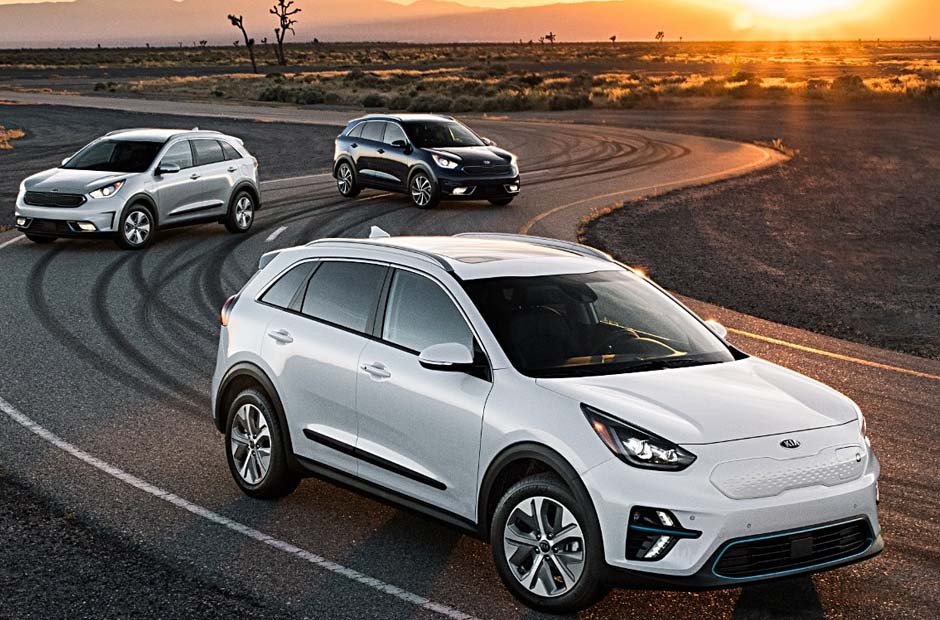Introduction to Hybrid Vehicles
In an age where environmental awareness is making significant inroads into every aspect of life, our transportation choice is one of the most direct impacts we can make. Hybrid sedans are at the heart of this revolution, producing fewer emissions and optimizing fuel usage. They combine the best of both worlds with an electric motor and an internal combustion engine. The increasing popularity of these vehicles can be seen in showrooms nationwide, including the various trims and options available at a dedicated Honda Accord dealership, providing an opportunity for eco-conscious drivers to step into the future of transportation.
The dual propulsion system seamlessly integrates a battery-powered electric motor with a conventional fuel engine, allowing hybrid vehicles to tap into efficient energy usage. This integration is tuned to maximize fuel efficiency during in-city driving, where electric motors can take the lead, and on highways, where the gasoline engine provides the range and power. The sophisticated energy management system, the heart of the hybrid, decides in real-time which power source to use—or when to combine them both—for optimal efficiency and performance.
Opting for a hybrid isn’t merely a smart choice; it reflects a commitment to an eco-conscious lifestyle. Praised for their seamless performance, decreased emissions, and long-term fuel savings, these cars epitomize environmental responsibility. At Honda dealerships in Georgia, explore hybrids offering impressive performance, rivaling traditional gasoline vehicles, and showcasing the evolution of hybrid technology.
The Evolution of Hybrid Cars
The journey of hybrid vehicles from experimental curiosities to mainstream staples is a remarkable tale of technological triumph. At the dawn of the automotive age, hybrid systems were more of a novelty than viable commercial products. However, the late 20th century saw an increased public consciousness of environmental issues and a higher demand for more sustainable modes of transportation. Automakers then began investing heavily in hybrid technology.
The watershed moment for hybrids came with the launch of trailblazing models. These vehicles sparked the public’s imagination and paved the way for various models that fit every lifestyle and budget. Since then, hybrid models have been refined to deliver improved performance and excellent fuel economy and to address the multiple needs of drivers who require different things from their vehicles.
Present-day hybrids continue to evolve, offering an array of styles, from compact cars to family sedans and even high-performance sports cars. This diversity underscores the industry’s commitment to sustainable choices that do not compromise individual preferences or performance expectations.
Hybrid Sedans and Environmental Impact
Conscious consumers increasingly prioritize the environment in their purchasing decisions, and choosing a hybrid vehicle is a significant expression of this value. Hybrids aim to diminish the impact of transportation on the environment by lowering the output of harmful emissions and improving air quality, especially in urban settings where traffic congestion and air pollution are prevalent issues.
By harnessing a blend of electric and gasoline power, hybrids can reduce the carbon footprint of vehicles significantly. This is most evident during stop-and-go city driving, where electric motors can operate independently of gasoline engines, creating a quiet, emission-free driving experience. Investing in a hybrid is a personal choice and a communal contribution towards the global effort of reducing greenhouse gasses and fighting climate change.
Adopting hybrid vehicles also contributes to cleaner air quality in towns and cities. By lowering the dependence on fossil fuels for daily commutes, hybrids significantly reduce the pollutants released into the atmosphere. This results in a marked improvement in air quality, which has long-term health benefits for the population. This environmental stewardship entices municipalities to support the propagation of hybrids through specific incentives, making hybrids an even more attractive option for the eco-minded individual.
Cost-Effectiveness of Owning a Hybrid
In addition to their environmental benefits, hybrid sedans offer economic advantages that are particularly attractive in an era of fluctuating fuel prices. The initial investment in a hybrid vehicle may be higher than a conventional automobile’s. However, the savings tally over time makes hybrids an economically sound choice. Fuel expenses, one of the most considerable ongoing costs for vehicle owners, are notably reduced due to the impressive fuel economy of hybrids.
Hybrid owners will not see savings solely at the gas pump. Many countries offer various financial incentives, including tax breaks or rebates, for hybrid vehicle purchases. These measures can significantly lower the purchase price, reduce ownership costs, and accelerate the return on investment. Additionally, hybrid vehicles often maintain higher resale values, further offsetting the initial expense and reinforcing the financial rationale for choosing a hybrid over a conventional car.
With such benefits, it’s no surprise that hybrids are seen as an intelligent long-term economic move. From daily savings on fuel costs to tax incentives and high resale values, the financial case for hybrids continues to strengthen.
Hybrid Technology in Modern Sedans
The progressive evolution of hybrid technology is a keystone in the development of modern sedans. Manufacturers have honed this technology, producing vehicles that are more energy-efficient and complete with the latest industry standards regarding comfort, safety, and driving experience.
Advancements in the systems that manage the power distribution between the gasoline engine and the electric motor are among the essential developments in hybrid technology. This has resulted in hybrids with extended battery life and more refined engine performance, contributing to a seamless and responsive driving experience that rivals traditional vehicles.
The future of hybrids looks to integrate more eco-friendly energy sources, such as solar power, to recharge batteries on the go. Such innovations are not only pushing the limits of hybrid technology efficiency but are also positioning hybrid vehicles well for continued relevance in an increasingly competitive automotive market.
Consumer Considerations When Choosing a Hybrid
For prospective buyers, choosing the proper hybrid sedan is based on various criteria. These considerations range from the vehicle’s performance to its feature set, reliability, and even the manufacturer’s ethos regarding sustainability.
Performance measures such as acceleration, horsepower, and torque should be compared alongside environmental efficiency ratings to strike a desired balance. Moreover, hybrid-specific factors, like the efficiency of the regenerative braking system, battery warranty, and the durability of the hybrid components, are important metrics for predicting vehicle reliability over time.
Furthermore, potential buyers must consider the creature comforts and technological features hybrid models offer. From advanced infotainment systems to driver-assist technologies, these elements enrich the driving experience and play a significant role in the purchasing decision.
Maintenance and Longevity of Hybrid Sedans
Hybrid vehicles have long been met with the misconception that they are high-maintenance. On the contrary, hybrids tend to require less frequent service for their engines and transmissions due to the support of the electric motor. However, to ensure the long-term durability of the vehicle, understanding the unique maintenance requirements of a hybrid system is necessary.
Regular maintenance checks should focus on the health of the battery pack and the electric motor, in addition to the typical service points of a conventional vehicle. With advanced diagnostic systems, many issues can be preemptively identified and remedied before they become significant problems, thus extending the lifespan of the hybrid sedan.
One of the fears often associated with owning a hybrid—battery replacement—has become less of a concern with the improvements in battery technology. Modern hybrids have batteries to last most of the vehicle’s operational life. This progression is a testament to current hybrid vehicles’ reliability and cost-effectiveness.
Government Incentives for Hybrid Vehicles
Government incentives are a powerful tool to promote the adoption of hybrid vehicles. Recognizing the environmental and public health benefits of hybrids, many governments worldwide have implemented a variety of incentives to make these vehicles more accessible and appealing to the general public.
Tax credits and rebates, both federal and regional, can significantly reduce the upfront cost of purchasing a hybrid vehicle. In some cases, incentives come in the form of reduced vehicle tax rates, registration fees, or even direct subsidies. Moreover, initiatives like exemptions from congestion charges and access to high-occupancy vehicle lanes are also used to encourage individuals to switch to a more sustainable driving option.
Such supportive policies are essential for stimulating consumer interest and aiding the industry in transitioning towards more environmentally friendly transportation options. As these incentives continue to evolve, they play an increasingly pivotal role in the market dynamics of hybrid vehicle sales. The comprehensive policy effort seeks to promote a more sustainable future that embraces clean transportation as a norm rather than an exception.
The Global Shift Towards Hybrid Adoption
The global uptake of hybrid vehicles is a sign of a broader acceptance of the need for sustainable transportation solutions. Consumers from all corners of the world are embracing hybrids, indicating a shift in attitude toward personal responsibility for the environment.
Statistics from international markets illustrate a significant rise in hybrid sales. This trend can be attributed to increased consumer awareness, improved technology, and supportive governmental policies across various nations. The reduction in ownership costs due to advancements in hybrid efficiency and wider model availability have further bolstered the market for these eco-friendly cars.
By opting for hybrids, consumers are not just participating in a market trend but contributing to a sizable impact on global carbon emissions, laying the groundwork for cleaner, more sustainable communities. Greater adoption of hybrid vehicles is a cornerstone of the international strategy to mitigate environmental degradation in the conventional automotive industry.
Future Outlook for Hybrid Sedans
The future of transportation is inexorably linked to the evolution of sustainable and efficient vehicles, with hybrid sedans playing a crucial role in the imminent transition to an eco-friendly automotive landscape. As technological advancements continue rapidly, the potential for electric cars, including hybrids, to reshape transportation grows more tangible by the day.
Continued research in advanced battery technologies and alternative fuel sources is anticipated to improve hybrid vehicles’ range, efficiency, and affordability. These improvements will likely bolster their presence in the global auto market and deepen their impact on transportation norms.
Ultimately, the onus is on consumers to endorse and accelerate this shift towards a sustainable future. Through informed purchasing decisions and a vocal demand for responsible manufacturing, car buyers play a critical role in shaping the future of transportation. The road ahead for hybrids is promising, with models like those offered leading the charge towards cleaner, more efficient driving experiences. This shift in public sentiment is further substantiated by reports such as the one by the International Energy Agency, highlighting the remarkable progress and projected growth of hybrid and electric vehicles globally.
















